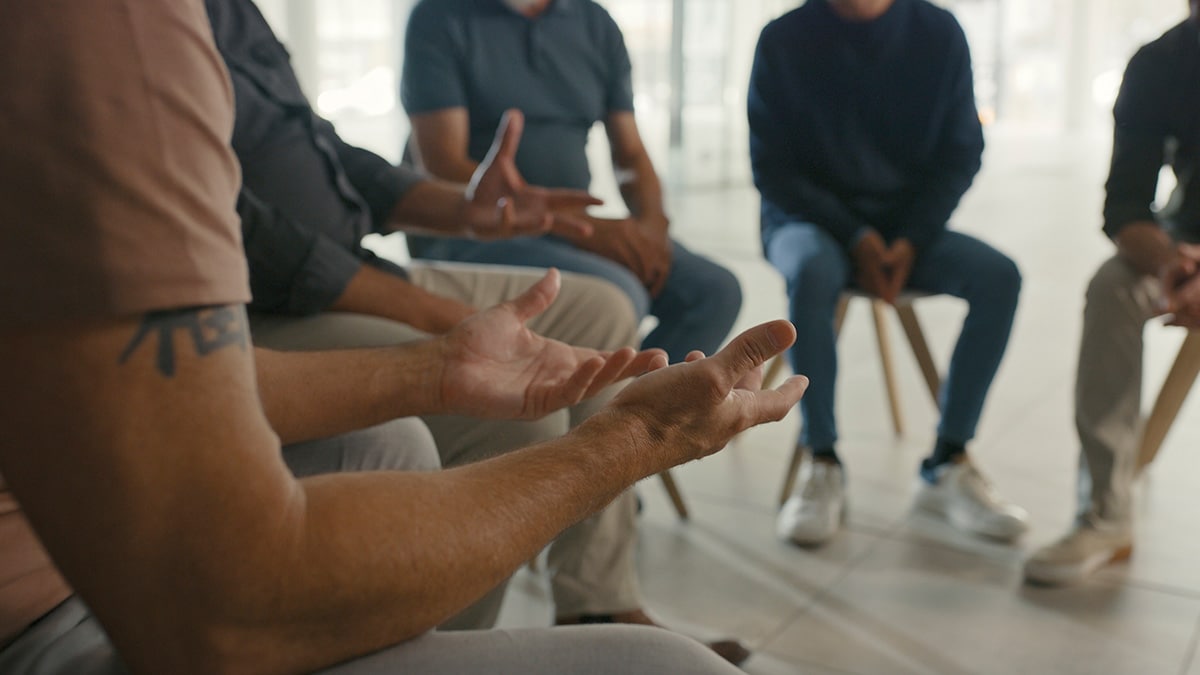Key points
- Reentry services include any service that assists in reintegrating someone, adult or juvenile, into society.
- Services may be provided to a formerly incarcerated individual and any person/organization that supports them.
- Reentry services encourage positive health outcomes for the communities to which the individual is returning.

Why it matters

According to the U.S. Bureau of Justice Statistics, approximately 600,000 people are released from state and federal prisons annually, with another 9 million people cycled through local jails. Reentry services, including linkage to medical care, can improve health outcomes for those reentering their communities.
Thoughtfully planned, consistent, and culturally sensitive reentry programs can link formerly incarcerated persons to proper care and help them adopt a healthier lifestyle. Programs can leverage the cooperation, expertise, and resources of health departments, community organizations, and correctional facilities, to help reduce further justice involvement and barriers to continuity of care.
Below are reentry resources that can be used by public health departments, correctional facilities, transitional living facilities, and community-based organizations to improve the health of persons being released from incarceration, as well as improve the health of their communities.
Resources
- The Council of State Governments: Preparing People for Reentry – Checklist for Correctional Facilities: A checklist to prepare people for reentry into the community and guidance to address needs and considerations.
- U.S. Department of Justice: Roadmap to Reentry: The principles for improved reentry practices being used in the U.S. Bureau of Prisons (BOP).
- U.S. Department of Justice: National Reentry Resource Center: The latest news and events and multiple reentry resources and reports from the U.S. Department of Justice.
- The National Reentry Network for Returning Citizens: Projects that assist formerly incarcerated persons as they transition back to society; this network also assists their community.
- Department of Housing and Urban Development (HUD): Meeting the Housing Needs of Formerly Incarcerated and Justice-Involved People: A resource library from the Department of Housing and Urban Development (HUD) and training and grant opportunities for those who work with people who experience homelessness.
- HHS Assistant Secretary for Planning and Evaluation (ASPE): Incarceration & Reentry: A description of HHS activities to address recidivism.
- Federal resources for health care access: continuity care & preventive; Health Resources and Services Administration (HRSA); Centers for Medicare and Medicaid Services (CMS); Federally qualified health center (FQHC)
- Various resources for medically underserved communities, and you can learn about the impact of HRSA's Health Center Program.
- Information about low-cost health care in your community; you can see if you are eligible to enroll for coverage.
- On the federally qualified health centers (FQHC) page you will find how to locate an FQHC, which helps those who have no health insurance.
- Various resources for medically underserved communities, and you can learn about the impact of HRSA's Health Center Program.
- HHS Substance Abuse and Mental Health Services Administration (SAMHSA)
- Substance Use Disorder: harm reduction, recovery support, & Medication Assisted Treatment (MAT)
- On the harm reduction, recovery support page you will find a link to enter your address and find a treatment facility near you for those with substance use disorder or mental health issues.
- On the Medication Assisted Treatment (MAT) page you will find information, resources, training, and grant information on MAT use in the criminal justice system.
- On the harm reduction, recovery support page you will find a link to enter your address and find a treatment facility near you for those with substance use disorder or mental health issues.
- Behavioral Health: virtual programs and treatment services locations
- A list of virtual recovery resources for various audiences including Native American/Alaska Native communities, women, and veterans.
- A link to enter your address and find a treatment facility near you for those with substance use disorder or mental health issues.
- A list of virtual recovery resources for various audiences including Native American/Alaska Native communities, women, and veterans.
- Substance Use Disorder: harm reduction, recovery support, & Medication Assisted Treatment (MAT)
- HHS ASPE Administration for Native Americans: Improving Outcomes for American Indian/Alaska Native People Returning to the Community from Incarceration: A resource guide for service providers of American Indian/Alaska Native people returning to the community to improve outcomes for this population; specific populations include children and families, youth, and women.
- National Disability Rights Network: This site provides information about the laws protecting the civil and human rights of persons with disabilities, including TBI. People in correctional and detention facilities with disabilities, or their families, can receive help from the Network regarding legal rights, access to mental health services and/or medication, and restoration of benefits upon release.
- U.S. Department of Justice: Planning a Reentry Program: A Toolkit for Tribal Communities: A toolkit designed to help tribal justice system practitioners create or enhance reentry programs for American Indians and Alaska Native peoples returning from jail or prison.
- Urban Institute: Partnering with Jails to Improve Reentry: A guidebook for community-based organizations, including how to develop and sustain a partnership with the local jail; examples of strong partnerships between CBOs and jails are described.
- US Department of Veterans Affairs: reentry resources for Veterans
- Veterans Justice Outreach Program: The page provides information on the Veterans Justice Outreach Program that seeks to identify justice-involved Veterans and contact them through outreach, in order to facilitate access to VA services at the earliest possible point.
- National Call Center for Homeless Veterans: Learn more information on how to contact the National Call Center for Homeless Veterans for Veterans who are homeless or at risk of homelessness and their family members, friends and supporters.
- Health Care for Re-entry Veterans Services and Resources (HCRV): Learn more about services offered by the HCRV program that are designed to promote success and prevent homelessness among Veterans returning home after incarceration.
- Veterans Justice Outreach Program: The page provides information on the Veterans Justice Outreach Program that seeks to identify justice-involved Veterans and contact them through outreach, in order to facilitate access to VA services at the earliest possible point.
